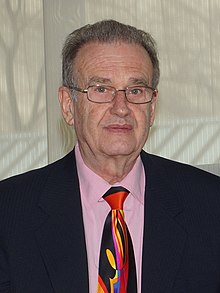“Scientists
are
very
often
consciously
or
unconsciously
driven
by
agendas
well
outside
science,
even
if
they
do
not
acknowledge
them.”
—Neil
Turok,
Director,
Perimeter
Institute,
2012
CBC
Massey
Lectures
Seminar - Professor Emeritus John Bandler

Whatever
the
case,
the
rest
of
your
performance
serves
as
confirmation
of
your
audience’s
bias
and
first
impressions.
And
besides
you,
your
slides
and
your
posters
have
their
own
agenda,
subplot
or
series
of
subplots
that
reflect
you,
your
expertise,
your
authenticity,
your
passion
for
your
subject,
and
your
attention
to
issues
like
relevance,
context,
clarity,
citations,
acknowledgments,
respect,
consistency
of
fonts,
spelling,
and
those
excruciating
details
in
your
visual
aids
that
you
can’t
bear
to
leave
out,
and
even
their
artistic
composition.
At
your
poster,
you
have
just
moments
to
pitch
the
importance
of
your
work.
As
for
your
oral
presentation,
remember
that
your
audience
may
have
already
sat
through
several
presentations
that
day.
I
use
my
expertise
as
a
writer
and
director
of
plays
as
well
as
a
professor
and
entrepreneur
(with
experience
at
trade
shows)
to
elaborate
on
effective
presentations
at
a
conference:
embracing
your
audience’s
needs;
gaining
trust;
the
importance
of
clarity,
citation
and
acknowledgement;
the
importance
of
“story”
and
admitting
setbacks;
those
crucial
first
few
seconds,
and
your
first
few
slides;
and
how
to
identify
and
avoid
potential
traps
and
pitfalls.
McMaster
professor
emeritus
John
Bandler
is
an
engineer,
entrepreneur,
innovator,
researcher,
artist,
speaker,
and
author
of
fiction,
including
stage
plays.
He
wrote
and
directed
That
The
Multitude
May
Live,
which
can
be
seen
on
YouTube,
along
with
Christmas
Eve
at
the
Julibee
Motel,
and
other
examples
of
his
theatrical
work.
Some
of
his
talks,
including
his
2014
TEDx
McMaster
U
talk,
are
available
on
the
internet.
He
has
published
500
technical
papers
and
contributions
to
books,
has
won
numerous
professional
awards,
and
pioneered
the
space
mapping
technology
in
1993.
In
1997,
Hewlett-Packard
acquired
his
company
Optimization
Systems
Associates
Inc.
He
is
a
Fellow
of
several
societies,
including
the
Canadian
Academy
of
Engineering
and
the
Royal
Society
of
Canada,
and
has
been
honoured
by
a
Queen
Elizabeth
II
Diamond
Jubilee
Medal.
He
mentors
individuals
for
public
presentations,
including
the
Three
Minute
Thesis
(3MT®)
competition,
and
spearheads
the
team
bringing
the
first
ever
3MT®
competition
to
the
IEEE
International
Microwave
Symposium
in
2017.